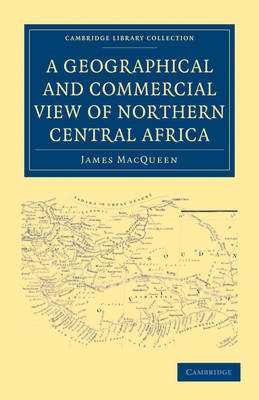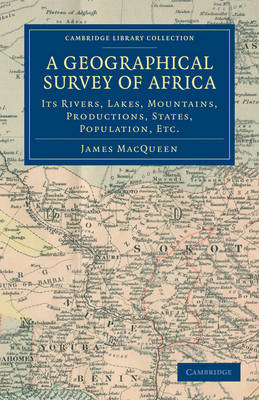Cambridge Library Collection - African Studies
2 total works
A Geographical and Commercial View of Northern Central Africa
by James MacQueen
Published 19 May 2011
James MacQueen (1778-1870) was a British geographer fascinated by the problem of the River Niger. He set out to try to establish (on the basis of accounts by explorers, traders and missionaries), that one and the same river flowed continuously through Africa and into the Atlantic Ocean, thus challenging long-established beliefs that African rivers either disappeared into the sand or terminated in lakes. MacQueen documents his findings in this pioneering work, first published in 1821. Drawing on evidence from a range of authorities, he argues that previous misconceptions about the Niger had left Africa isolated from the civilised world, and shows how his discovery could open up trading opportunities between Africa and other countries, suggesting that contact with Europeans would lead to the eventual abolishment of the slave trade in the interior. This important study remains relevant to scholars of both geography and African history today.
James MacQueen (1778-1870) was a British geographer and also one of the most outspoken critics of the methods of the British anti-slavery campaign in the 1820s and 1830s. Although he never visited Africa, he became an acknowledged expert on the continent, through reading all available accounts, ancient and modern, as well as interviewing slave merchants while managing a sugar plantation in the West Indies. This work was published in 1840, and was aimed at assisting the expansion of colonial trading interests. In the preface he is critical of the efficacy of British attempts to eradicate the slave trade, and also of the ill-preparedness and often fatal ignorance of many explorers. He believed that with better information and planning, European involvement in Africa could be much more effective, and that the slave trade could be better reduced by the work of missionaries and by increased trade than by military intervention.

